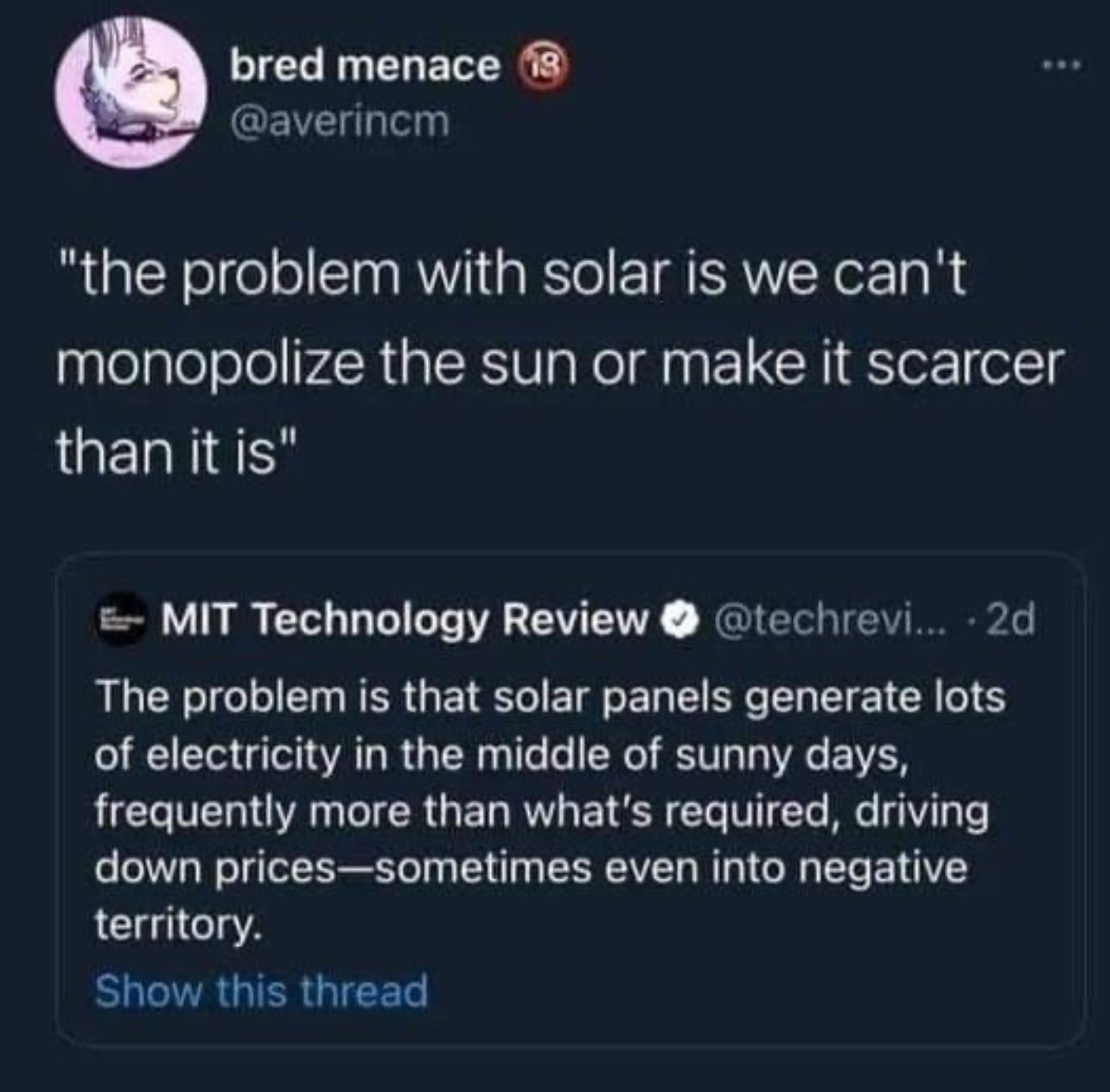this post was submitted on 02 Oct 2024
1688 points (95.6% liked)
Microblog Memes
6024 readers
1876 users here now
A place to share screenshots of Microblog posts, whether from Mastodon, tumblr, ~~Twitter~~ X, KBin, Threads or elsewhere.
Created as an evolution of White People Twitter and other tweet-capture subreddits.
Rules:
- Please put at least one word relevant to the post in the post title.
- Be nice.
- No advertising, brand promotion or guerilla marketing.
- Posters are encouraged to link to the toot or tweet etc in the description of posts.
Related communities:
founded 1 year ago
MODERATORS
you are viewing a single comment's thread
view the rest of the comments
view the rest of the comments

There have been proposals for technology like this. Putting a motor above an abandoned mineshaft and suspending a weight. Charged by raising the weight, discharges by lowering against a load.
The issues is the capacity ends up being pretty tiny, not really at a grid level.
You’d need a TON of motors to get to something a grid could actually use to stabilize, and by then the economics don’t work out. Let alone the actual space requirements of that many motors
Additionally, a lot of the advantages of batteries come from local storage, where you don’t need to transmit the energy long distances anymore, and these “natural” batteries tend to take up a lot of space.
A better and more accessible form of “natural” energy storage are already in most homes. Heat pump water heaters in homes could do things like make the water extra hot during solar hours, when power is cheap, so they can make it until the next morning without turning back on.
Or with better building envelopes (insulation) we could run more cooling during solar, maybe even make a ton of ice. Then later in the day, when solar drops and the grid load peaks, you can still cool the building with ice.
The physical battery idea has been a thing for decades in the form of a pump storage plant where during times of excess electricity, they pump water up a hill, and when power is needed it works like a hydroelectric power plant. The problems with these however is that in order to get a meaningful amount of power and longevity, you need a lot of water and space to build one of these which makes them massive and expensive up front. I have one near me, but I also live near one of the biggest lakes in the world, which helps.
Yes, pumped storage is definitely an existing technology that serves this need. I live near a massive one as well. However, large-hydro recently has not been considered as renewable form of generation due to the disruptive impact it has to local ecosystems.
I know in the US, new projects do not get approved due to permitting and water board issues. So I don’t think we’re going to see any new construction.